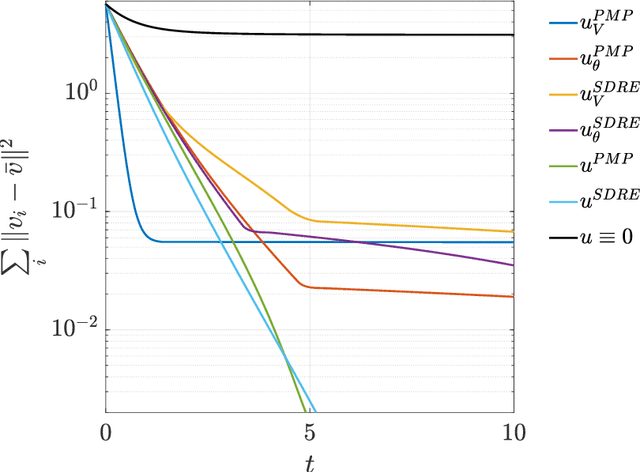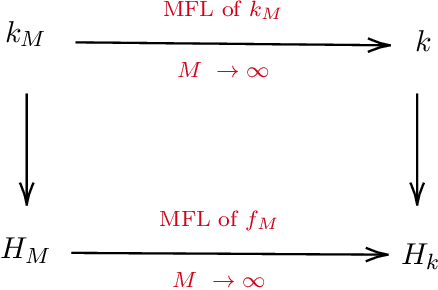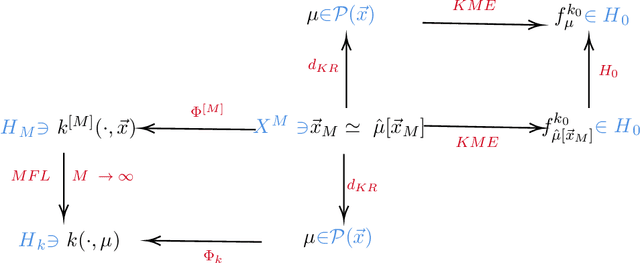Chiara Segala
Data/moment-driven approaches for fast predictive control of collective dynamics
Feb 23, 2024



Abstract:Feedback control synthesis for large-scale particle systems is reviewed in the framework of model predictive control (MPC). The high-dimensional character of collective dynamics hampers the performance of traditional MPC algorithms based on fast online dynamic optimization at every time step. Two alternatives to MPC are proposed. First, the use of supervised learning techniques for the offline approximation of optimal feedback laws is discussed. Then, a procedure based on sequential linearization of the dynamics based on macroscopic quantities of the particle ensemble is reviewed. Both approaches circumvent the online solution of optimal control problems enabling fast, real-time, feedback synthesis for large-scale particle systems. Numerical experiments assess the performance of the proposed algorithms.
Reproducing kernel Hilbert spaces in the mean field limit
Mar 17, 2023


Abstract:Kernel methods, being supported by a well-developed theory and coming with efficient algorithms, are among the most popular and successful machine learning techniques. From a mathematical point of view, these methods rest on the concept of kernels and function spaces generated by kernels, so called reproducing kernel Hilbert spaces. Motivated by recent developments of learning approaches in the context of interacting particle systems, we investigate kernel methods acting on data with many measurement variables. We show the rigorous mean field limit of kernels and provide a detailed analysis of the limiting reproducing kernel Hilbert space. Furthermore, several examples of kernels, that allow a rigorous mean field limit, are presented.
 Add to Chrome
Add to Chrome Add to Firefox
Add to Firefox Add to Edge
Add to Edge